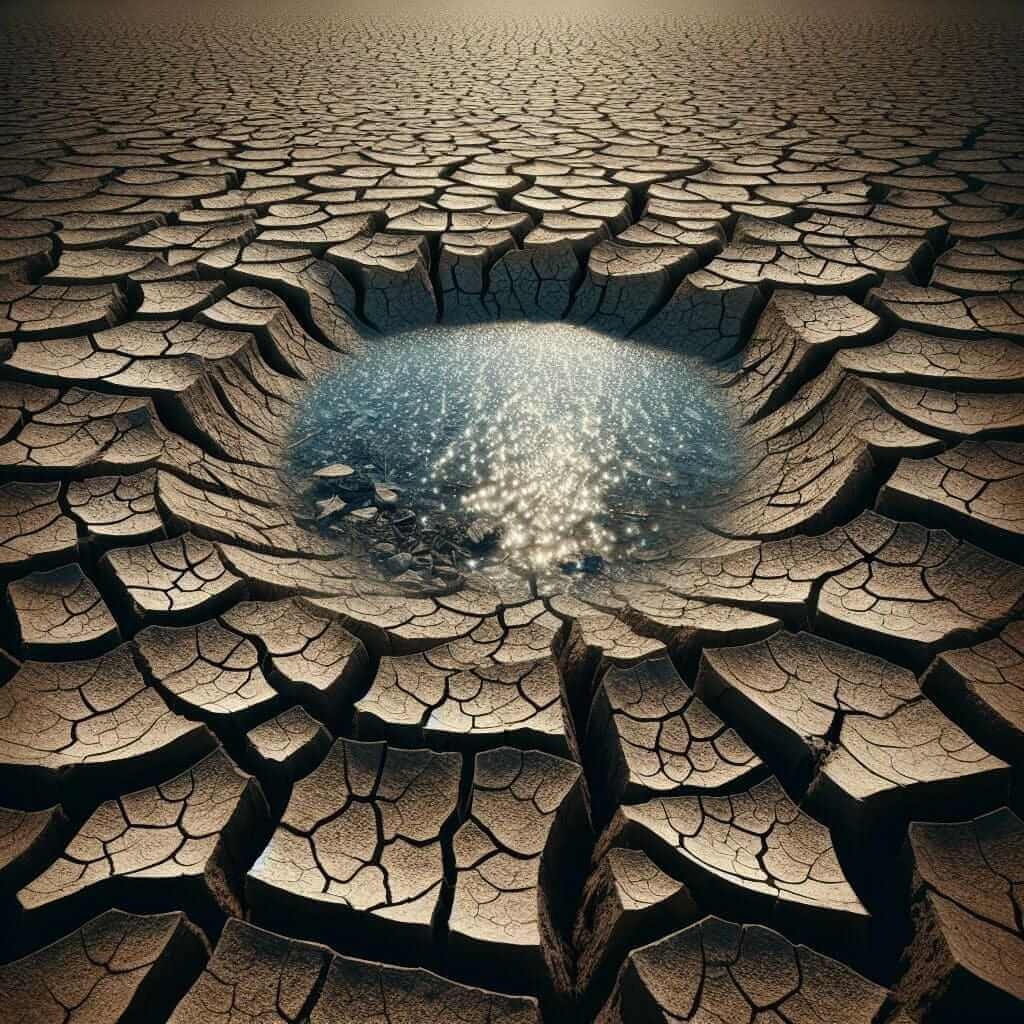Water, the elixir of life, is facing a critical challenge – scarcity. This pressing environmental issue affects millions globally, impacting agriculture, industry, and our daily lives. As future IELTS test-takers, understanding this issue is crucial not only for demonstrating your English proficiency but also for showcasing your awareness of global challenges.
In the context of IELTS, “addressing water scarcity” often appears in the Writing Task 2 and Speaking Part 3 sections. You might be asked to discuss the causes, effects, and potential solutions for this global crisis. A strong understanding of relevant vocabulary and the ability to articulate well-structured arguments is key to achieving a high band score.
Illustrating the Problem: Examples of Water Scarcity
Let’s delve into some examples to understand the real-world implications of water scarcity:
- Cape Town, South Africa: In 2018, Cape Town faced “Day Zero” – the day taps were predicted to run dry. Severe drought brought the city precariously close to this crisis, highlighting the vulnerability of urban areas to water scarcity.
- The Aral Sea: Once the fourth-largest lake globally, the Aral Sea has shrunk dramatically due to water diversion for irrigation. This ecological disaster serves as a stark warning about the consequences of unsustainable water management.
- California Drought: The U.S. state of California experiences recurring droughts, impacting its agricultural heartland and leading to water restrictions.
- India’s Water Crisis: Rapid population growth and urbanization in India are putting immense pressure on its water resources, leading to shortages and conflicts over water access.

These examples highlight the global reach of water scarcity. In your IELTS exam, drawing upon such diverse examples will demonstrate your knowledge and ability to apply it to real-world issues.
Applying Knowledge to IELTS: Tackling Exam Questions
Writing Task 2:
Imagine encountering this essay question: “Water scarcity is a growing problem worldwide. Discuss the causes and effects of this issue and suggest possible solutions.”
Here’s how you can structure your response:
- Introduction: Begin by defining water scarcity and stating its global significance.
- Body Paragraph 1 (Causes): Discuss factors like climate change, deforestation, overpopulation, and inefficient irrigation practices.
- Body Paragraph 2 (Effects): Explore consequences such as food shortages, economic decline, social unrest, and environmental degradation.
- Body Paragraph 3 (Solutions): Propose solutions like rainwater harvesting, desalination, promoting water conservation technologies, and raising public awareness.
- Conclusion: Summarize your points and emphasize the urgency of addressing this issue.
Speaking Part 3:
Consider this potential question: “What can individuals do to conserve water in their daily lives?”
Here’s a possible response structure:
- Acknowledge the Issue: Begin by agreeing that individual efforts are crucial in tackling water scarcity.
- Provide Specific Examples: Suggest practical actions like taking shorter showers, fixing leaky faucets, watering plants efficiently, and choosing water-efficient appliances.
- Elaborate and Explain: Briefly explain how each action contributes to water conservation. You can also share personal anecdotes or experiences to add a relatable touch.
- Conclude with a Thought: End by emphasizing the importance of collective action and individual responsibility in addressing this global challenge.
Common Mistakes to Avoid:
- Generalizations: Avoid making sweeping statements without supporting them with evidence. For instance, instead of saying “Climate change is the sole cause of water scarcity,” mention it as a contributing factor alongside other relevant causes.
- Memorized Responses: While it’s helpful to have a structure, avoid sounding robotic. Use a range of vocabulary and tailor your response to the specific question.
- Ignoring Cohesion and Coherence: Ensure your essay or spoken response flows logically. Use linking words and phrases to connect ideas smoothly.
Practice Makes Perfect: Refining Your IELTS Skills
To excel in the IELTS, consistent practice is key. Here are some ways to hone your skills:
- Vocabulary Building: Create flashcards with relevant vocabulary like “desalination,” “aquifers,” “water footprint,” “sustainable consumption,” etc.
- Mock Tests: Regularly practice writing essays and speaking on water scarcity-related topics. Get feedback from experienced IELTS tutors or teachers to identify areas for improvement.
- Stay Informed: Read articles, watch documentaries, and listen to podcasts about water scarcity. This will not only broaden your knowledge but also provide you with contemporary examples to cite in your exam.
For more insights on tackling environmental topics in the IELTS, explore our resources on Food Security and Climate Change.
Conclusion:
Addressing water scarcity is a multifaceted challenge requiring global cooperation and individual responsibility. By understanding this pressing issue, equipping yourself with the necessary vocabulary, and practicing your IELTS skills, you can confidently articulate your thoughts and demonstrate your English proficiency while showcasing your awareness of a critical global concern.